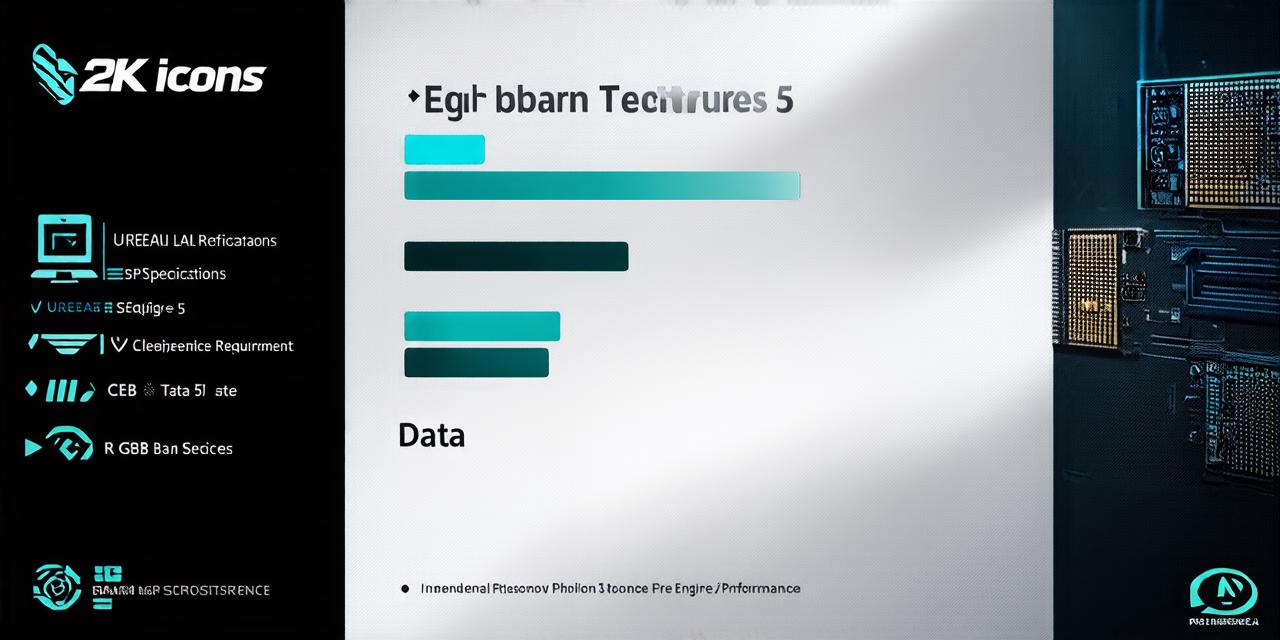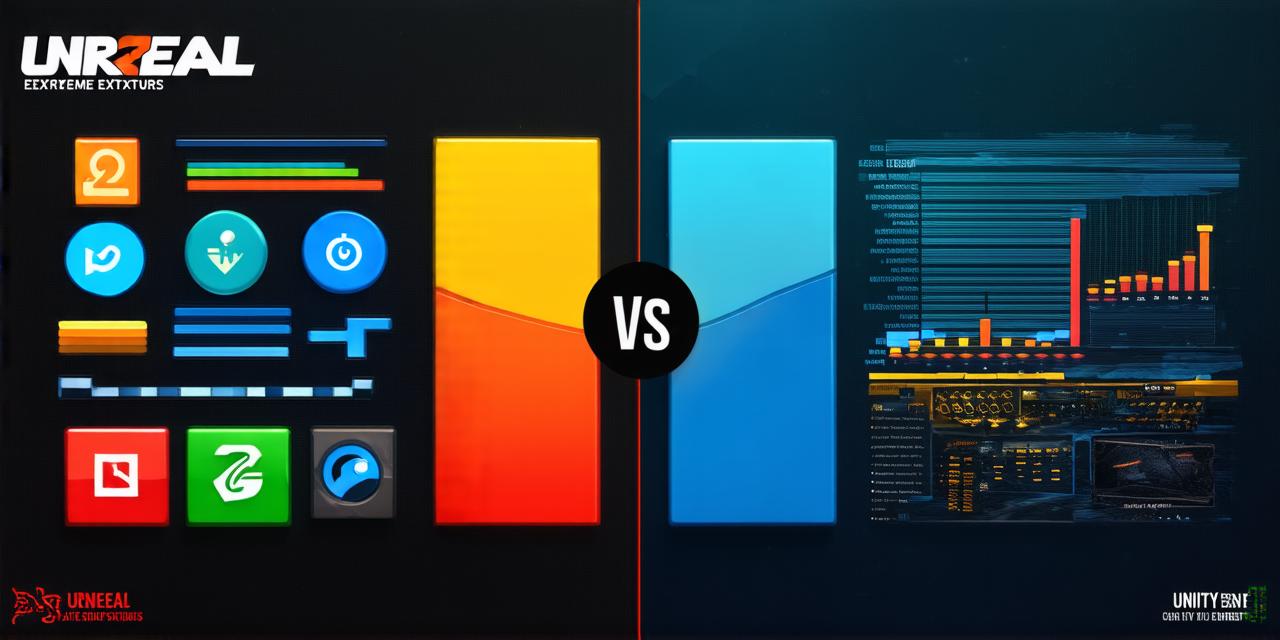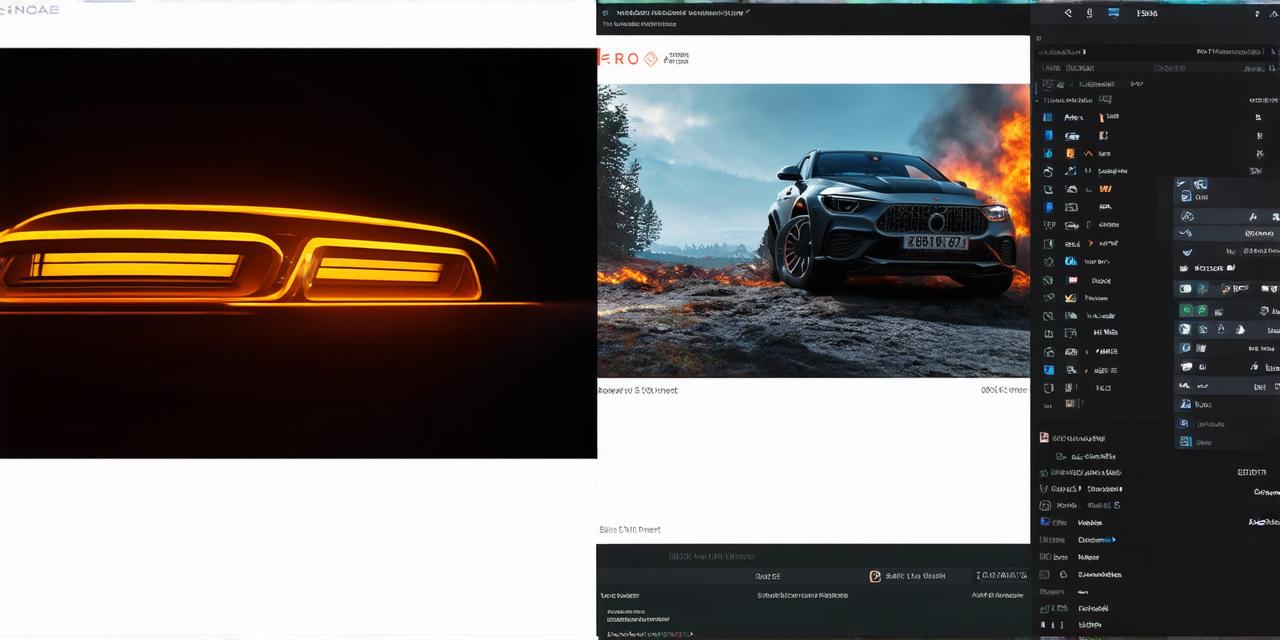When it comes to choosing a game engine, there are many options available in the market. In this article, we will compare Godot and Unreal Engine to help you decide which one is right for your game development project.
Key Features of Godot
Godot is an open-source game engine that offers a wide range of features and tools for game development. Here are some of its key features:

- User-friendly interface: Godot has a clean and easy-to-use interface that allows developers to focus on creating games rather than struggling with the engine’s settings and controls.
- Flexibility: Godot is designed to be flexible, allowing developers to use it for any type of game development project. Whether you’re building a 2D platformer, a 3D adventure game, or a mobile app, Godot has the tools you need to bring your ideas to life.
- Cross-platform support: Godot supports multiple platforms, including Windows, macOS, Linux, iOS, Android, and more. This means that you can develop games for multiple devices with a single codebase, saving time and resources.
- Community support: Godot has a growing community of developers who contribute to its development, creating plugins, tools, and other resources to help others get started or improve their game development process.
- Ease of use: Godot is designed to be easy to use, with a focus on accessibility and simplicity. It comes with built-in features that automate many tasks, reducing the amount of time and effort required for game development.
Key Features of Unreal Engine
Unreal Engine is one of the most popular game engines in the market today. Here are some of its key features:
- Advanced graphics capabilities: Unreal Engine offers advanced graphics capabilities, including support for HDR and ray tracing. This makes it an excellent choice for developers who want to create visually stunning games.
- Robust physics engine: Unreal Engine comes with a powerful physics engine that can simulate complex physical interactions in real-time. This is particularly useful for developers working on action, adventure, or sports games.
- Comprehensive tools and features: Unreal Engine offers a wide range of tools and features for game development, including support for 2D and 3D graphics, animation, audio, networking, and more.
- Cross-platform support: Unreal Engine supports multiple platforms, including Windows, macOS, Linux, iOS, Android, and more. This means that you can develop games for multiple devices with a single codebase.
- Large community support: Unreal Engine has a large and supportive community of developers who contribute to its development and create plugins, tools, and other resources to help others get started or improve their game development process.
Comparing Godot vs. Unreal Engine
When comparing Godot and Unreal Engine, there are several factors to consider:
- Ease of use: Godot is designed to be easy to use, with a focus on accessibility and simplicity. It comes with a drag-and-drop editor that simplifies the game development process, making it easier for beginners or developers who want a more straightforward approach.
- Flexibility: Both Godot and Unreal Engine are designed to be flexible, allowing developers to use them for any type of game development project. However, Godot may be more suitable for smaller projects or projects with less complex requirements, while Unreal Engine is better suited for larger and more complex projects.
- Graphics capabilities: Unreal Engine offers advanced graphics capabilities, including support for HDR and ray tracing, making it an excellent choice for developers who want to create visually stunning games. Godot also has good graphics capabilities but may not be as advanced as Unreal Engine in this regard.
- Physics engine: Unreal Engine comes with a powerful physics engine that can simulate complex physical interactions in real-time, making it an excellent choice for developers working on action, adventure, or sports games. Godot also has a good physics engine but may not be as advanced as Unreal Engine in this regard.
- Community support: Both Godot and Unreal Engine have large and supportive communities of developers who contribute to their development and create plugins, tools, and other resources to help others get started or improve their game development process. However, Unreal Engine has a larger community, which means more resources and support are available for its users.
Conclusion
In conclusion, both Godot and Unreal Engine are powerful game engines that offer many features and tools for game development. When deciding which one to use, it’s important to consider your project’s requirements, including the level of complexity, graphics capabilities, and physics engine needs. If you’re looking for an easy-to-use, flexible, and open-source game engine, Godot may be the right choice for you. However, if you need advanced graphics capabilities and a more powerful physics engine, Unreal Engine may be the better option. Ultimately, the decision will depend on your specific needs and preferences.




